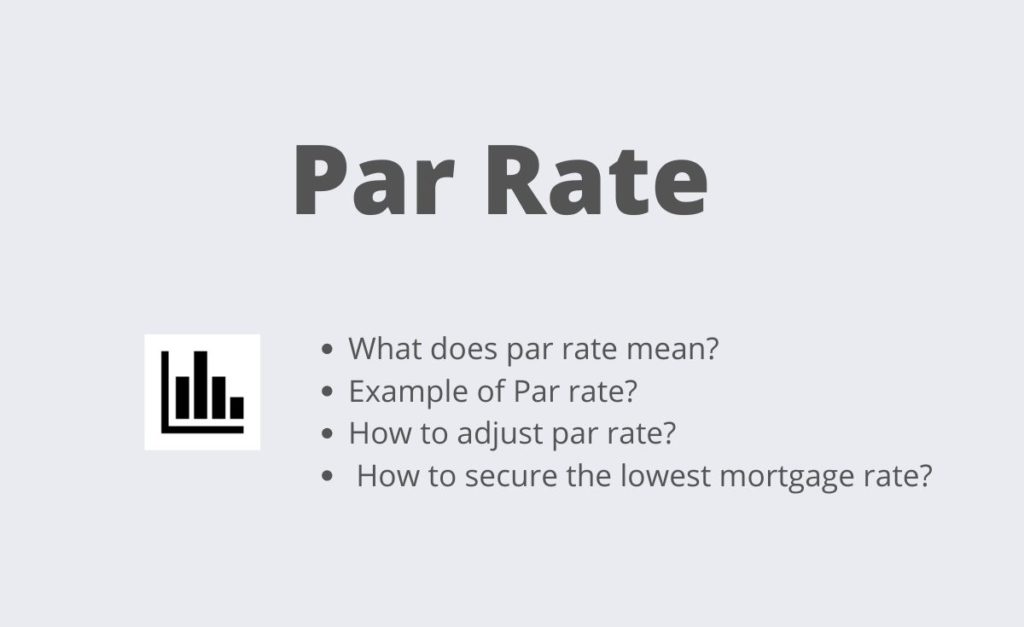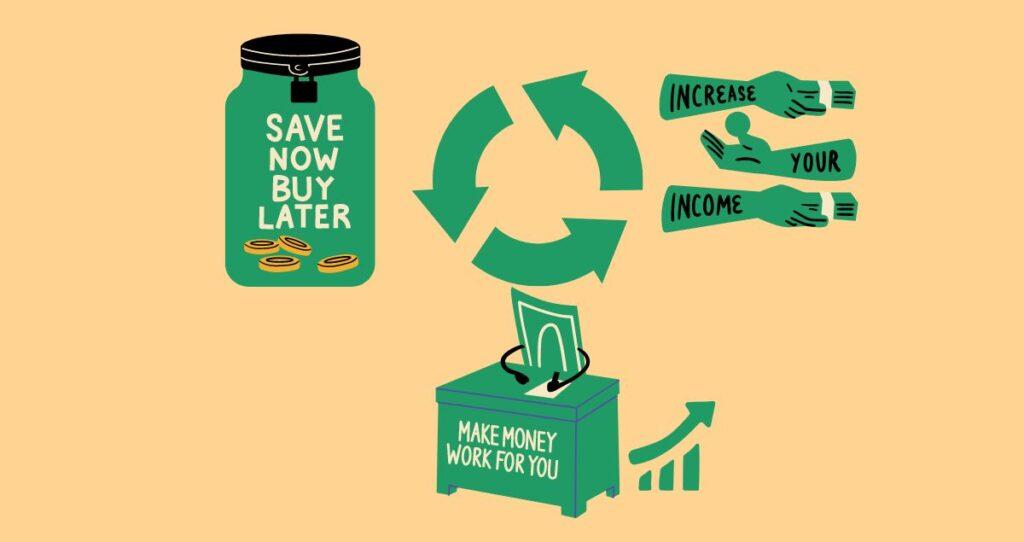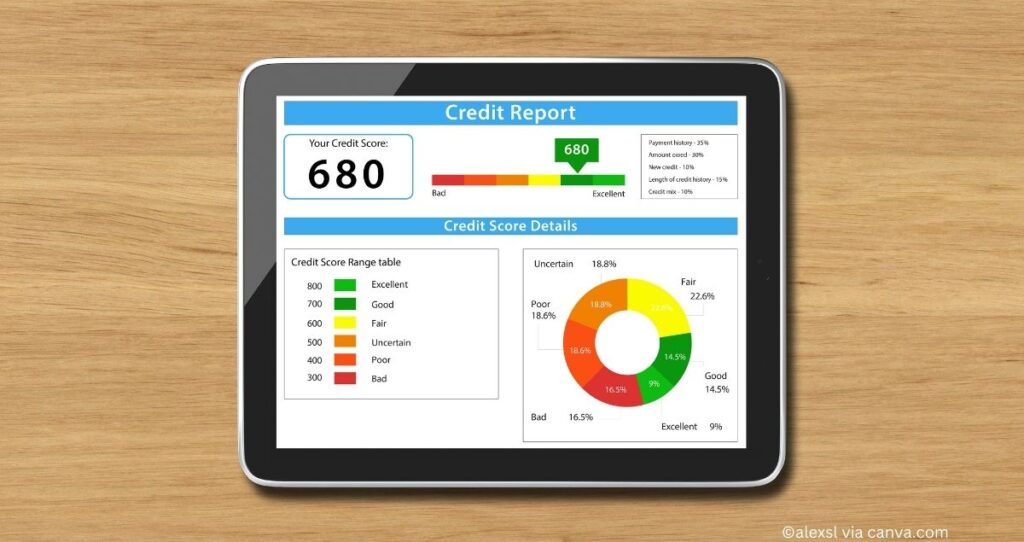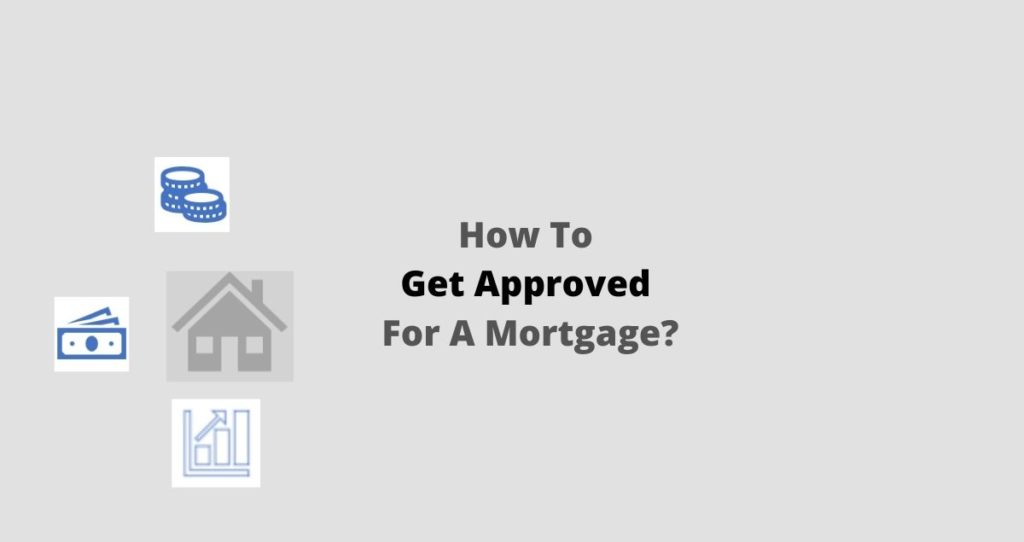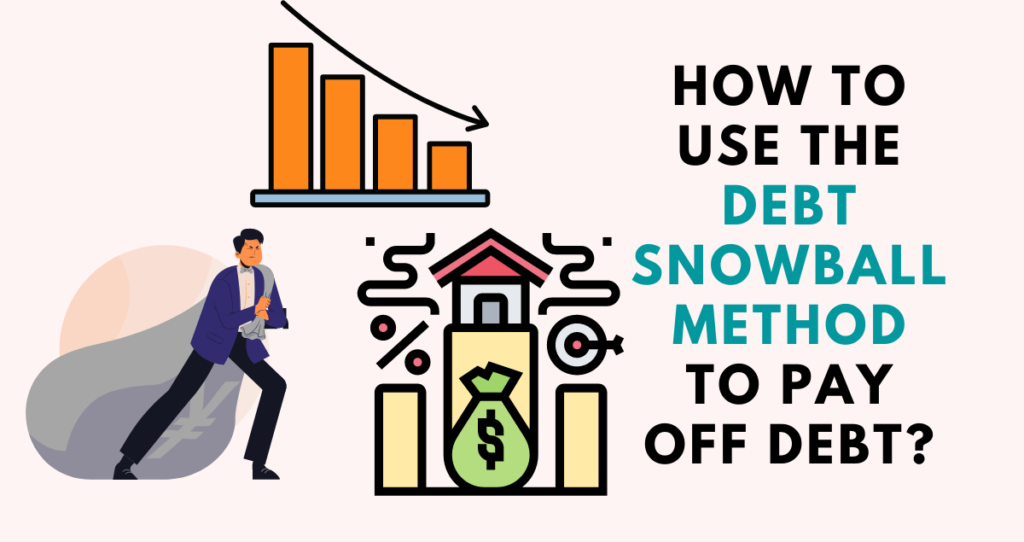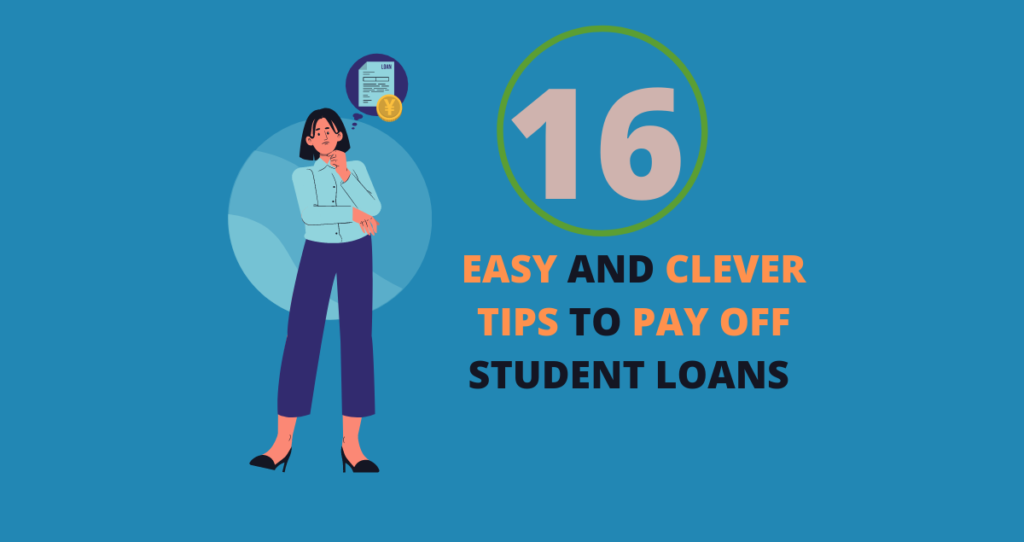What is a mortgage par rate?
Par rate is a term used to describe the interest rate estimated by an underwriter that the borrower must pay on the mortgage. This interest rate is calculated before lenders credits and the discount points/mortgage points are adjusted to the mortgage.
How does the mortgage par rate work?
When you apply for a mortgage, the underwriter will analyze your application and decide the mortgage par rate you will pay on the money you have been approved for. This interest will be different from one borrower to another depending on many factors.
The following are some of the factors that will affect your mortgage par rate.
- Your credit score
- The down payment you are planning to use
- The type of mortgage you want (conventional mortgage, FHA mortgage, USDA loan, VA loan, etc.)
- Credit history
- The type of rate you are looking for (fixed-rate mortgage or adjustable-rate mortgage)
- Your current financial profile
- Your debt to income(DTI) ratio
Once these factors are evaluated, the underwriter will use their result to estimate your creditworthiness as part of the risk assessment process. In other words, the lender will estimate how risky it is to lend money to you.
Their conclusion will help them understand the mortgage par rate you must pay in order to use their money. Risky borrowers pay higher interest rates.
>>MORE: Loan Estimate: What Is The Loan Estimate?
How to adjust the mortgage par rate?
The mortgage par rate you received from the lender can still be changed. In order to reduce or increase your mortgage par rate, you will need to negotiate the rate using two ways: (1) Discount points and (2) lender credits.
1. Discount points
Discount points a.k.a mortgage points is the money you pay directly to the lender in order to lower your interest rate. This process is also down as buying down your interest rate. This money must be paid in advance. As noted by Bank of America, each discount point will be equal to 1% of the mortgage principal.
The number of mortgage points you can buy varies from state to state due to the federal and state law about how much you can pay in closing costs. As noted by Quickens Loans, it is rare to find a lender who can sell you more than four mortgage points. Most lenders allow two to three points.
Example of discount points
Let’s assume that you are buying a house for $400,000 with a 20% ($80,000) down payment. In order to buy this house, you will need to borrow 80% ($320,000) of the entire house purchase. Once the lender tells you the par rate, you decided to reduce it by purchasing discount points.
So, each point will cost you 1% of the money you are borrowing. In our example, each discount point will cost you $3,200 (1% of $320,000). As noted by Investopedia, each point can reduce your interest rate at most 0.25%. Assuming that you are getting this percentage, 2 discount points will cost you $6,400 upfront and you will reduce the par rate by 0.5%. You can use the same method to evaluate how your rate will go down by increasing the number of points.
2. lender credits
Lender credits refer to the money a lender will agree to pay on the closing costs if the borrower agrees to pay a higher interest rate. For example, the lender can agree to cover the appraisal fee if you agree to pay a higher interest rate.
Why would you want to pay a higher interest rate? Well, there are times when you may need the loan without enough cash to cover all closing costs. In this case, you can negotiate with your lender about the matter. If the lender agrees to cover some of these closing costs, your interest rate will go higher.
This is because you must repay the lender the portion of closing costs they covered for you; and an easy way to do it is to add that extra charge to your interest rate. Hence, increasing the interest rate.

How to get the lowest mortgage par rate?
It is possible that you can get the lowest mortgage rate in the market. The amount of preparation you put into the process and underlying factors will determine your rate.
The following are the top 5 things you should do to secure the lowest mortgage rate.
1. Improve your credit score
Your credit score is not just a number. It is the sole representation of your financial world. Your credit score will tell the lender how risky it is to lend you money and your creditworthiness in general. Without a good credit score, you will not qualify for a conventional mortgage, and if you do, you will be charged a higher interest rate.
So, before you apply for a mortgage or a loan, make sure that your credit score is as good as it can get. Having an excellent credit score will increase your chances of having the lowest interest rate.
>>MORE: How Does A Credit Score Affect A Mortgage Rate?
>>MORE: 8 Tips You Can Use To Improve Your Credit Score
2. Improve your current financial status
One of the most convincing factors that lenders will consider is your current income and its stability. Without being stable at your job or having a jot at all, there is no way you can pay off your mortgage.
So, lenders pay enough attention to this factor. If you don’t have a secure job or a job that is convincing enough to justify your ability to afford the mortgage; do not move forward with the mortgage application. You don’t want to receive a denial letter and end up with a hard inquiry on your credit profile.
>>MORE: Credit Report Overview
>>MORE: How Long Do Hard Inquiries Stay On A Credit Report?
3. Reduce your debt to income (DTI) ratio

Your debt to income ratio is the ratio between your debt and income. If you have a lot of debt compared to how much you make, this ratio will be much higher.
A higher DTI ratio will raise an alarm and lenders could deny your mortgage application. Lenders think that as your debt overweigh your income, you lose the ability to pay them off. As a result, you could end in a foreclosure which is the last thing neither you nor your lender wants to do.
For this reason, make sure that your DTI ratio is good before you submit your loan application. If not, work on this ratio first. You can improve your DTI ratio by reducing your debt, increasing your income, or both.
Related articles
- How To Pay Off Debt? 11 Tips You Can Use
- How To Pay Off Credit Card Debt? 10 Tips I Used
- How To Pay Off A Student Loan: 16 Easy Tips To Use
- 51 Easy Ways To Make Money Fast
- 20 Ways To Make Money From Home
- How To Get A Raise Or A Promotion At Work?
4. Have enough down payment
Your down payment will directly affect the mortgage interest rate and your monthly payments. Without enough down payment, you will be subjected to a higher interest rate and mortgage insurance.
You will need at least a 20% down payment in order to qualify for a conventional mortgage without purchasing mortgage insurance. So, before you apply for a loan, make sure that you have enough down payment.
>>MORE: How To Save Money: Step By Step
5. Shop around and compare multiple quotes
Did you know that not all mortgage lenders offer the same rates? Lenders have different algorithms they use to calculate rates, as a result, their rates are always different.
To secure a lower interest rate, you must do your homework. Shopping around for lower rates is a great idea. You can start with your current bank and move on from there.
Your real estate agent can also recommend lenders with lower rates.
